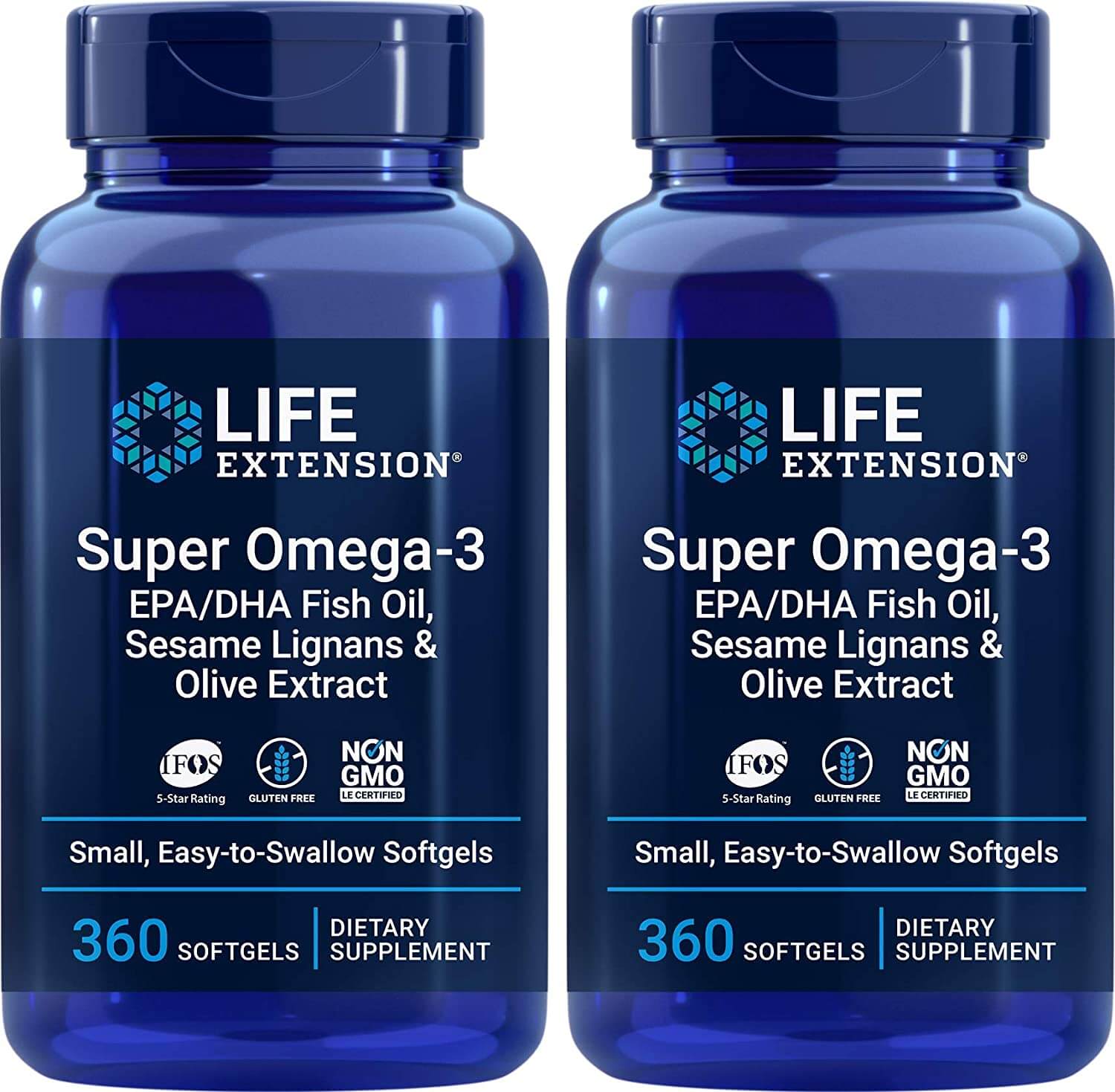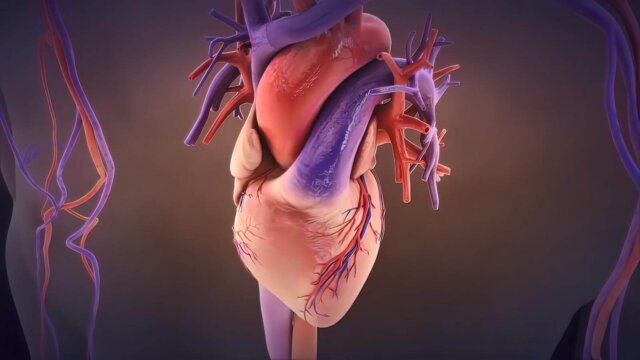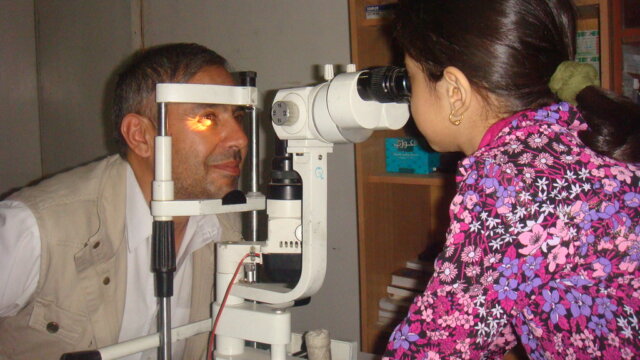FTC disclaimer: This post may contains affiliate links and we will be compensated if you click on a link and make a purchase.
Omega-3 is an essential fatty acid, otherwise known as an EFA, found in fish, certain plants, and health supplements.
You probably know that for your body to function properly, you should be consuming adequate amounts of essential fatty acids, including Omega-3.
Because your body cannot make essential fatty acids by itself, you must eat foods containing Omega-3 or take supplements containing Omega-3 to ensure that your body receives adequate amounts.
Omega-3 acids contain good fats that help in the proper functioning of the brain and alleviate various diseases.
What are Omega 3 fatty acids, and why do you need them?
Omega 3 fatty acids are called “essential fatty acids” because they are necessary for your health.
But, surprisingly, your body cannot produce them. You must take them from the food you eat or through a supplement.
If you’re wondering why Omega 3s are necessary, it’s because they are “building blocks.”
Omega 3 is a necessary part of the membrane of each cell in your body, and there are somewhere between 50 million to 100 trillion of those!
Even though fats are used by cells as a source of fuel, omega-3 fatty acids play other critical cellular functions:
- Omega 3 is the basis for many important physiological signaling molecules called eicosanoids.
- Omega 3 plays an essential function in regulating the function of the membrane of each cell.
The 3 Main Types of Omega 3
Omega 3 fatty acids come in 3 main varieties:
- Alpha-Linolenic Acid (ALA)
- Eicosopentaenoic Acid (EPA)
- Docosahexaenoic Acid (DHA).
EPA and DHA are the types that have received the most study and have been found to have the greatest health benefits.
The brain needs adequate levels of DHA (docosahexaenoic acid), an essential fatty acid, to repair and rebuild cells.
Scientific studies show that the fatty acids found in oily fish promote optimal brain function. Increasing the amount of omega 3 in your diet improves memory and general IQ.
DHA is also essential to our eyes, brain, and muscles, especially the heart.
Many diseases are linked to a dietary deficiency of DHA, including depression, multiple sclerosis, and attention deficit disorder.
EPA helps prevent the blood from clotting easily, lower triglyceride levels in the blood, and has a positive impact on reducing pain and swelling.
Moreover, the EPA stimulates brain function, making us more alert, concentrate better, and remember more things. It is anti-inflammatory and effective in reducing heart disease and Arthritis.
ALA is found within mitochondria, which are the powerhouses of the cells. ALA is effective in digestion, absorption, and the creation of energy.
Moreover, It has antioxidant properties and helps enzymes turn nutrients into energy.
ALA can be converted in the body into the more bio-available (readily used by cells) eicosapentaenoic acid (EPA) or docosahexaenoic acid (DHA).

What Are The Main Sources Of Omega 3s?
There are both plant and animal sources of Omega 3 fats.
ALA is mainly found in the following foods:
- Dark green leafy vegetables
- Walnuts
- Flax seeds
- Variety of vegetable oils.
EPA and DHA, the types that pack the health benefit punch, are found mainly in the following cold-water fish:
- Salmon
- Cod
- Mackerel
- Tuna
- Hoki
Moreover, smaller amounts are contained in organically raised animal products like free-range eggs, chickens, and grass-fed beef.
The American Heart Association recommends eating at least two servings of fish each week.
If you don’t like eating fish or, for any other reason, can’t eat enough Omega 3s, you can take a pure, molecularly distilled fish oil supplement to receive all of the health benefits.
Omega-3 deficiency causes and effects
According to Harvard University researchers, omega-3 deficiency is the sixth biggest killer of Americans.
After conducting research, Harvard researchers concluded that omega-3 deficiency contributes to 72,000 to 96,000 preventable deaths each year.
The researchers used a mathematical model and considered 12 dietary, lifestyle, and metabolic risk factors to develop this figure.
The causes of death range everything from breast and prostate cancer to cardiovascular disease.
Extensive research shows that insufficient levels of omega-3 worsen each of these conditions.
This is why it is so important to be sure you have enough omega-3 in your diet, whether from the foods you eat or from taking health supplements of fish oil.
Effects of Omega-3 Deficiency
If you aren’t getting enough omega-3 in your diet, you’ll show signs of deficiency.
Signs of omega-3 deficiency are:
- Depression
- Cardiovascular Disease
- Type II Diabetes
- Fatigue
- Dry, itchy skin
- Brittle hair and nails
- Inability to concentrate
- Joint pain
- Breast cancer
- Prostate cancer
These are the most common Omega-3 fatty acids deficiency symptoms.
While omega-3 supplements can’t cure these conditions, having the optimum level of this essential fatty acid can improve and relieve many of the symptoms and improve your overall health.
To ensure you’re getting enough omega-3 fatty acids in your diet, you should start adding foods rich in omega-3, such as wild-caught salmon, shrimp, herring, walnuts, and flaxseed.
If you don’t makeup to eat food rich in Omega-3, talk with your doctor about taking omega-3 supplements.
Benefits of Omega-3 Fatty Acids
Omega 3 for Women
Helps in PMS Symptoms
Most women suffer from PMS symptoms. This happens every month.
According to research, an imbalance of fatty acids in the woman’s body causes much pain and dysmenorrhea.
Another research study has stated that omega-3 fatty acids help reduce the psychiatric symptoms of PMS, including lack of concentration, anxiety, nervousness, and depression.
Omega 3 helps balance the fatty acids, helping relieve the monthly pain.
Reduces the risk of Osteoporosis
Osteoporosis is common among women after menopause.
The risk increases as they get old, especially if they don’t have much fatty acid in their diet.
According to research studies, high levels of Omega-3 fatty acids will help reduce the risk of Osteoporosis.
Improve Fertility
Omega 3 also helps to improve fertility.
According to research, women would improve fertility, egg quality, and reproductive lifespan by consuming fish oil fatty acids in their diet.
Omega 3 balances and improves blood flow to the uterus and hormone levels.
Prevent Menstrual Cramps
A study has shown that omega-3 fatty acids can help block the production of prostaglandin hormones.
Prostaglandins are the leading cause of cramping. Though it will not make them go away completely, the fatty acids can help relieve some discomfort.
Reduce the risk of Breast Cancer
According to a study, women who eat or take Omega 3 supplements over the years may be less likely to develop breast cancer.
It is a topic that is up for more study, but it is safe to assume that the benefits of omega 3 help the body rid itself of cancerous potentials.
Omega 3 for Children
Helps in child brain development
Research has stated that Omega-3 Fatty acids, in particular DHA, help to improve a child’s brain development and increase intelligence.
Additionally, DHA also helps in the development of cognitive function.
Reduce the risk of ADHD, Dyslexia, Dyspraxia
Research has shown that insufficient intake of omega 3 causes dyslexia, ADHD, and dyspraxia.
These are mental and behavioral disorders common to children. Omega 3 fish oil fatty acids will prevent the high risk of these disorders.
Another study has shown a reduction in behavior problems with the consumption of omega-3 supplementation.
Improve Children’s Learning and Health Problems
Omega 3 also has a beneficial effect on children’s reading skills and improves eyesight.
Several studies have suggested that brain change occurs in healthy children due to omega-3 fatty acids supplementation.
Further, it has seen a significant improvement in the reading and spelling skills because of DHA supplementation.
Also, another study has shown that a low concentration of omega-3 fatty acids in children is more subjected to learning and health problems.
Improve memory and general IQ
The brain needs adequate levels of DHA (docosahexaenoic acid), an essential fatty acid to repair and rebuild cells.
As a staple food, fish is an excellent brain food because it contains Omega-3 fatty acids essential for brain health.
Scientific studies show that the Omega-3 fatty acids in oily fish promote optimal brain function. Increasing the amount of omega 3 in your diet improves memory and general IQ.
Omega-3 for Pregnant Women
Prevent premature birth
Most moms are very particular when it comes to pregnancy. They’ll do everything to protect themselves and their babies.
Fish oil fatty acids are beneficial in a mom’s pregnancy diet. It supports the proper exchange of nutrients between the mother and the baby.
A research review stated that proper fish oil fatty acids intake helps prevent premature birth.
Omega 3 supports the proper formation of the baby’s lungs in the mom’s womb. It also helps to reach a healthy baby weight.
Decrease the chances of reoccurring miscarriages
Research data has suggested that Omega 3 is essential for developing fetal brain tissue.
The amount received in food can be enough, but supplementation helps maintain a healthy store of nutrients to help the baby grow.
According to research studies, Omega 3 supplements have been shown in some cases to help decrease the chances of reoccurring miscarriages, also known as antiphospholipid syndrome.
Omega-3 for Adults
Reduces the risk of heart disease
Several studies have shown that Omega-3 fatty acids are beneficial because they help reduce the incidence of heart attacks and strokes by thinning the blood and reducing clotting in the bloodstream.
Further, it has been illustrated that Omega 3s also improve fluidity in cell membranes and communication between brain cells.
Many studies have shown that omega 3 prevents and treats the symptoms of heart disease.
These essential fats have been shown to cure internal inflammation, reduce the presence of unhealthy fats, and prevent blood clots.
Studies have shown that Omega 3 may contribute to increased cardiovascular health and may prevent heart attacks.
Omega 3 fatty acids slow plaque buildup in the arteries, and when your arteries are free of plaque, your blood can flow normally, avoiding heart complications.
Recent studies have also shown that patients who take Omega 3 and who have suffered from heart attacks seem to suffer heart attacks that are less severe than those who do not take an Omega 3 supplement.
Supplementing with a good combined ratio of Omega 3 and Omega 6 is known to safely lower the risk of heart attack or even sudden death.
Reduces the level of Triglyceride
Research studies have shown that fish oil fatty acids help improve our circulatory system. DHA and EPA stimulate the blood flow in our bodies.
Omega 3 reduces the levels of triglyceride, blood pressure, and cholesterol. It also prevents the high risk of a heart attack.
Omega 3 fish oil has been shown to reduce other risk factors, such as lowering serum triglyceride levels and total cholesterol levels, contributing to a heart attack.
A study showed that postmenopausal women could reduce their risk of heart attack by 27% when taking omega-3 fish oil.
Lower High Blood Pressure
Omega 3 has been shown to lower hypertension, according to a recent study by the American Heart Association Journal.
It showed significantly lowered blood pressure for people who took omega 3 for the study duration.
Another study has stated that supplementation of omega-3 fish oil, especially EPA and DHA helps individuals to lower hypertension.
Help Combat Diabetes
Recent studies have suggested that omega-3 fatty acids in the diet can influence type 2 diabetes.
Additionally, ethnicity, age, and duration can influence omega-3 fatty acids in type 2 diabetes.
Other studies have stated that Omega-3 fatty acids help prevent Glucose Intolerance (GI) and have anti-inflammatory properties.
May support weight loss, obesity, overweight
Some studies have shown that combining Omega-3 fatty acids with exercise can affect body mass.
Another study has shown that Omega-3 fatty acids can help in reducing the body fat mass in healthy adults.
Moreover, some studies have supported that polyunsaturated Omega-3 fatty acids can help obesity, reduce body fat, and promote weight loss.
Additionally, another study has demonstrated that omega-3 fish oil affects waist circumference with omega-3 supplementation combined with lifestyle changes.
Reduces the risk of cancer (Colon and prostate)
Omega-3 fatty acids are also one of the few supplements that are seriously being considered to prevent and aid in treating some types of cancer.
Studies have revealed that prostate cancer and breast cancer are two cancers that Omega-3 fatty acids can prevent.
It also reduces the risk of cancer, particularly breast, colon, and prostate, prevents cell transformation, and kills cancer cells that cause the disease.
In an animal study, Omega-3 fatty acids were shown to reduce tumor growth, slow disease progression, and increase overall survival rates.
Reduces the risk of mental disorders
Several studies have shown that the right amount of fatty acids lowers the risk of mental disorders and behavioral problems.
Omega-3 fatty acids assist the proper absorption of vitamins that protect our body from pains and diseases.
Reduce Depression
Depression is caused by the brain’s inability to handle and properly process the pressures of life.
Studies have shown that omega 3s help the brain rejuvenate and stay alert, focused, and happy.
The connection between proper brain nutrition and happiness has been confirmed on many accounts.
Helps in Elevating moods
Omega-3 fatty acids benefit the mind and the body, and it’s essential not to overlook the benefits of Omega-3 on our moods.
Research indicates that there’s been a link between people with certain mood disorders and having low concentrations of Omega 3 in their bodies.
In studies, depressed patients were given Omega 3 supplements, and many studies found that the Omega 3 supplements directly impacted elevating moods.
Helps to treat Eczema and Acne (Skin Conditions)
Research has found significant improvement in treating skin conditions like eczema with omega-3 fatty acids supplementation.
Studies have shown that eczema patients who take Omega 3 have shown reduced swelling and inflammation of the skin.
Studies have revealed that Omega-3 fatty acids supplementation is associated with the overall improvement in acne severity.
Support the treatment of Arthritis
Arthritis is a painful condition, and until recently, there has not been a safe and effective treatment for the condition.
Research studies have shown that Omega 3 fatty acids aid arthritis patients by reducing the joints’ pain, swelling, and stiffness.
Omega-3 fatty acids consumed daily may even prevent and relieve the symptoms of the condition osteoarthritis due to their anti-inflammatory properties.
The American Arthritis Foundation states that fish oil dietary supplements are recommended for people living with Arthritis and are an essential preventative measure.
Improve eye health
Several clinical trials have suggested that Omega-3 supplementation can help manage Age-related Macular Degeneration (AMD) and improve dry eye disease (DED).
Another study has stated that Omega-3 is beneficial for glaucoma patients because it helps in reducing intraocular pressure (IOP).
How To Choose The Best Quality Omega 3 Supplement
One common question many people are interested in is how to choose a good quality product or supplement?
Here we will take a closer look at what to look for when choosing an Omega 3 supplementation and also the different types of benefits that you may receive from taking this supplement.
Before you hastily go out there and hand over your hard-earned money, you need to understand and recognize that not all Omega 3 supplements are the same.
The difference between one product and another can be so great that if you don’t know what you’re looking for, you might buy a product that offers little to no benefits.
What to look for when searching for the right product
The first thing you should do some research on a handful of companies.
There are many different companies, so choose three to five different companies for your research.
You don’t need to spend all day finding out about a company and its history. Still, at the very least, you should try and find some testimonials (honest customer reviews and feedback) about the company and its products.
If they look after their customers and most people are happy with their products, this is a good sign.
If you find that a company has a poor reputation with their customers, it is also quite likely that this will reflect the quality of their products.
Quality Control
Once you have made your shortlist of maybe two or three companies whose products have good reviews, the next step would be to look at their manufacturing process.
Many health supplement companies trying to save money will outsource the manufacturing process, leaving their products vulnerable to contamination.
This means that you need to look for a company that oversees its manufacturing processes.
This will ensure that all the harmful toxins and metals are removed from the oils before being put into capsules.
Type and Source of Fish
You should also find out what type of fish is used and where the company sources their fish. Make sure that the company sources its fish from fresh and clean waters.
New Zealand, for example, is one area in the world where the waters are primarily unpolluted, especially the waters of the southern coast.
The fish (Hoki) that live in these pristine waters are free from contaminants and contain high amounts of Omega 3, making it an excellent area to source fish.
Poor Quality Products
You need to understand another thing when sourcing a high-quality Omega 3 supplement.
Unfortunately, there are a lot of shady companies out there that produce cheap, low-quality fish oil products to make a fast buck.
Some of the products that fall into this category can cause you more harm than good because many supplements contain harmful toxins such as PCBs, mercury, and lead.
Price
One of the most noticeable indications of a high-quality supplement is the price.
Generally speaking, if a product has a cheap price tag, it will usually be low quality.
If you are serious about looking after your health and finding the best Omega 3 supplements, you should be prepared to spend a little more money.
Recommended Omega 3 Dosage
The omega-3 fatty acids found in fish oil are extremely helpful in treating many heart problems, inflammation in the body, and several afflictions of the mind.
But it is also equally important to find out about the dosage. Omega-3 dosage will determine whether your body will respond to the positive effects of fish oil.
The dosage is usually mentioned on top of the bottle. But you cannot generalize the dosage for all categories of people.
The Omega-3 fish oil dosage will vary for children and older people. It will also be different for pregnant ladies.
Your health condition is another factor affecting Omega-3 dosage.
Omega-3 dosage for pregnant women
About 200mg/day of DHA is recommended for pregnant and lactating mothers.
1-2 servings of oily fish are also supposed to be taken by expectant mothers. This will increase the DHA level in the brain of the unborn child.
Omega-3 dosage for children under 18
The omega-3 dosage is yet to be determined for young kids. The activity level is so huge that the exact dosage is still under study.
Omega-3 dosage for healthy adults
The typical omega-3 dosage is about 250-500mg/day of combined EPA and DHA. This will be enough to counter problems due to heart failure.
Omega-3 dosage for infants
Omega-3 fatty acids increase a child’s immunity, and even his visual acuity is improved.
This dosage is still under review, and scientists have still to establish the right amount for pre-term infants.
The omega-3 dosage has great importance, and you will never reap its good effects unless you take the correct dose. It is always recommended to consult your doctor before taking omega-3 supplements.









